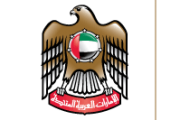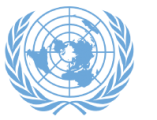The United Arab Emirates would like to thank Germany for organizing today’s open debate and maintaining the Council’s focus on the COVID-19 pandemic. We would also like to thank the briefers for their presentations.
The UAE has long viewed health and security as part of a nexus, with one affecting the other and requiring close multilateral attention and cooperation. This understanding has informed the UAE’s international response to COVID-19, including our endorsement of the Secretary-General’s call for a global ceasefire, contributions to the WHO and WFP, and bilateral delivery of more than 1,000 metric tons of medical supplies to over 70 countries, including many on the Security Council’s agenda. This understanding is also reflected in our domestic actions, where we have committed to transparent public data and free testing and treatment for citizens, residents, and visitors alike. We believe in the adage that no one is safe until everyone is safe.
As COVID-19 has underscored, an effective pandemic response requires simultaneous, coordinated mobilization of the UN’s development, humanitarian, and security pillars. In the context of the Security Council’s work, moving beyond mere recognition of the linkages between health and security requires new and careful thinking. However, the Council can and must play its part.
There are a number of possible impacts from the pandemic that bear on the Security Council’s mandate, especially for countries that are on its agenda, including loss of humanitarian access, displacement and large movements of people, increased recruitment among armed groups and increased violence as a result of induced poverty and collapse of institutions, and limitations on the ability of peace operations to fulfil their mandate, ultimately endangering the maintenance of international peace and security.
Today, we would like to share four initial reflections on how the Security Council could substantively respond to pandemics.
First, we welcome the adoption of Resolution 2532 for a general and immediate cessation of hostilities in all situations on its agenda and a durable humanitarian pause. The UAE was one of the first countries to endorse the Secretary-General’s global appeal because we believe that ceasefires have the potential to reduce the spread and toll of the disease, especially by improving humanitarian situations, which are otherwise highly conducive for contagion and mortality. Resolution 2532 hopefully provides a turning point precedent for future Council action on pandemics.
Second, we echo Resolution 2532’s recognition of the important role that peacekeeping missions can play in response to health crises, in close coordination with the host country. We note the precedent established during the response to Ebola of peacekeeping missions lending vital support to medical and humanitarian operations in West Africa. Furthermore, peacekeeping staff must be protected from pandemic diseases and, importantly, must not contribute to their spread. We welcome the steps taken in this regard, and would highlight, as one potential solution, the use of medical commodities stockpiles for peacekeeping and other staff in the UN’s supply depots, allowing quick, needs-based deployment around the globe.
Third, COVID-19 has exposed that pandemics create conditions for increased sexual and gender-based violence (SGBV). Pandemics therefore provide yet another proof point for the Security Council to be systematically briefed on gender-mainstreaming in the issues under its consideration, and to ensure that missions have the appropriate staff and resources to deliver on strong gender and SGBV mandates. It is similarly incumbent on Member States in the General Assembly, notably the Fifth Committee, to ensure that gender and SGBV-related budgets are protected, and that progress is driven through mandatory markers and other accountability tools.
Fourth, given the crucial importance of humanitarian access in crisis situations, we see a potential role for the Council during pandemics when borders and ports are closed. Such scoping will have to be highly sensitive and must not infringe on the rights and responsibilities of Member States to regulate the potential spread of disease, but the Council can be in a position encourage the flow of essential medical and humanitarian supplies to serve those most in need.
We hope that today’s open debate will be one of many discussions on how the Security Council can operationalize the health-security nexus. COVID-19 has shown us that we must take action in unity in order to protect global health and security as critical public goods.
Thank you.


